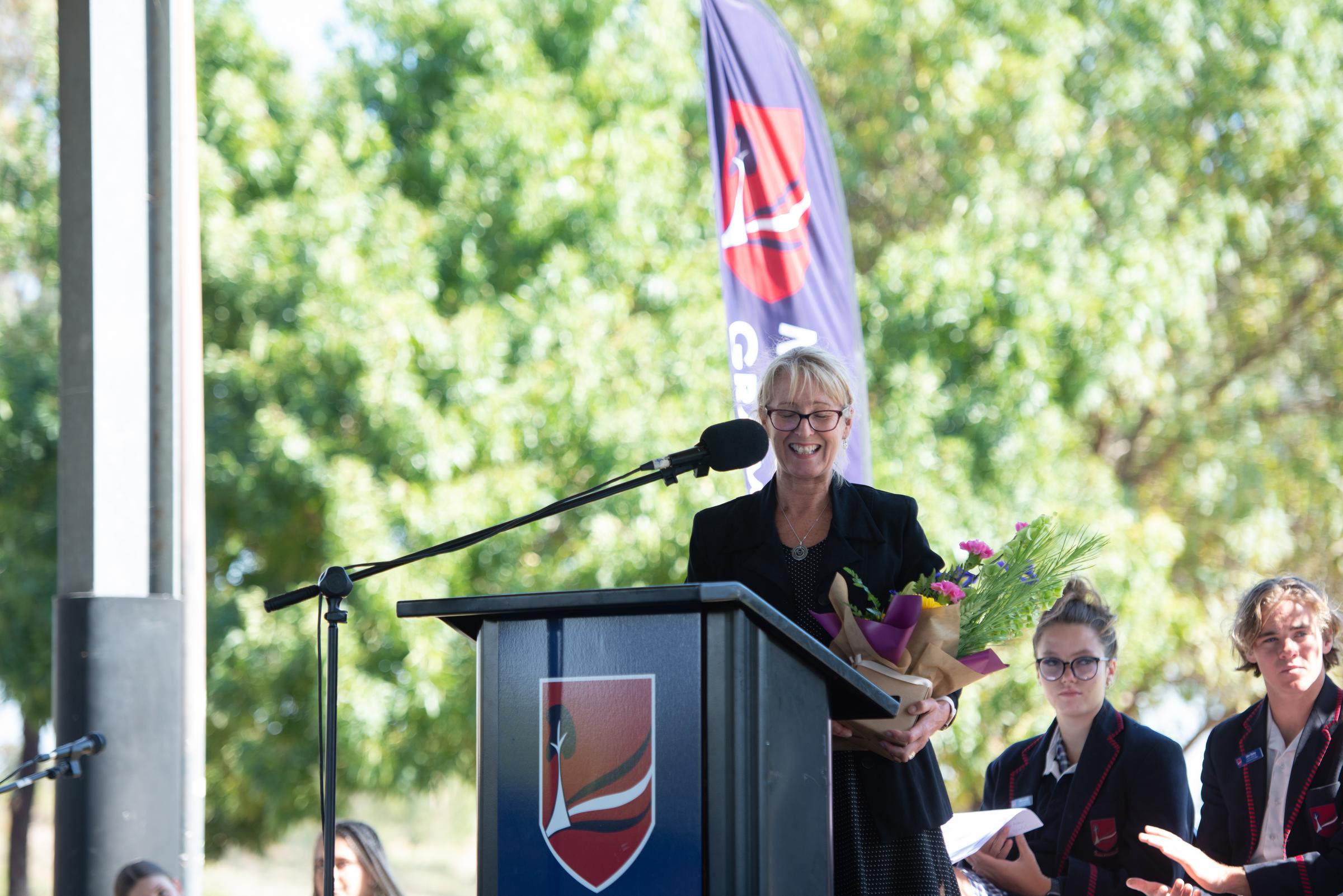From the Deputy Principal

Who we are at school is who we might be in the future...
In my time as Deputy Principal, I have received a number of phone calls from prospective employers, universities, theatre companies and even AFL recruiters asking about our past students. They want to know about the student’s character and want to know what they were like at school to see if they are going to be a good fit for their organisation. When they are deciding between two or more potential employees, performers or draftees, school references can be a great resource to get an indication of the character of the person. These conversations featured common themes; respect, integrity, compassion – Moama Anglican Grammar’s Core Values. The belief being that if these students have shown these values at school, they are more likely to exhibit them in the workplace, at university, on stage and on the footy field. How we are at school is not only important for the here and now, but also for the future – even years after a student’s last day.
I have received more of these type of phone calls than you might imagine and not just in the year after a student has finished school. Sometimes I receive these types of calls two, three or even five or six years after a student has left school. Interestingly, one question that is often asked is around uniform. Did the student wear their uniform well when they were at school? This attests to the student’s pride in their school which can equate to whether they will take pride in being part of the team of a future organisation that they will eventually work for. These organisations know about the “why” of a school uniform and how it can reveal a student’s character, particularly their integrity.
The ”why” of wearing a uniform well and how it may reveal character is as follows:
- Uniform does not discriminate: No matter who you are, where you are from, how much money your family or you have, if everyone in the organisation is wearing the same uniform there is an immediate level of equity. Wearing a uniform well, in the way the organisation expects it to be worn, indicates that the wearer knows they can show their individuality by who they are not what they wear.
- Industry demands: There are certain service industries which are focused on the customer, like the department store, restaurants, or hospitals. These industries demand that the workforce look more united and eager to serve the customer, so the role of the uniform becomes very important. A good employee recognises that wearing a recognisable uniform well gives customers the confidence to approach employees more confidently.
- Uniform saves time and money: Wearing a uniform results in considerable conservation of time as members of the organisation do not have to choose again and again the clothes to be worn when going to their job, school, sport or ensemble performance. Also a lot of money is saved since as the members of the organisation will not need to buy as many clothes. A student that has gone to a school with a uniform that is worn as it should be means they have focussed their time on learning.
- A sense of belonging: If the work force, school students, sporting teams and other groups wears the same clothes to the organisation, then they share a feeling of commonness and belonging, which otherwise gets very difficult to achieve (research on this has proven it beyond doubt). Wearing a uniform well shows pride in being part of the team, the will to work as part of a team and the recognition that others see you as part of that team when everyone wears the uniform well.
- Mutual growth: People wearing uniform are more caring for their fellow workers, students, team members, and group members. They care not only for their growth but the growth of their peers as well. Uniforms are very important and fosters traits which are very necessary for a person as an individual and an organisation as a whole to thrive and prosper.
At Moama Anglican Grammar we take the role of providing a safe and inspiring educational environment that equips students with the skills and confidence to help create their future very seriously. We know how important their schooling life is for their future and that this is done best by creating the wonderful opportunities we have here at school and working closely with teachers, students and their families.
Kathleen Kemp
Deputy Principal
